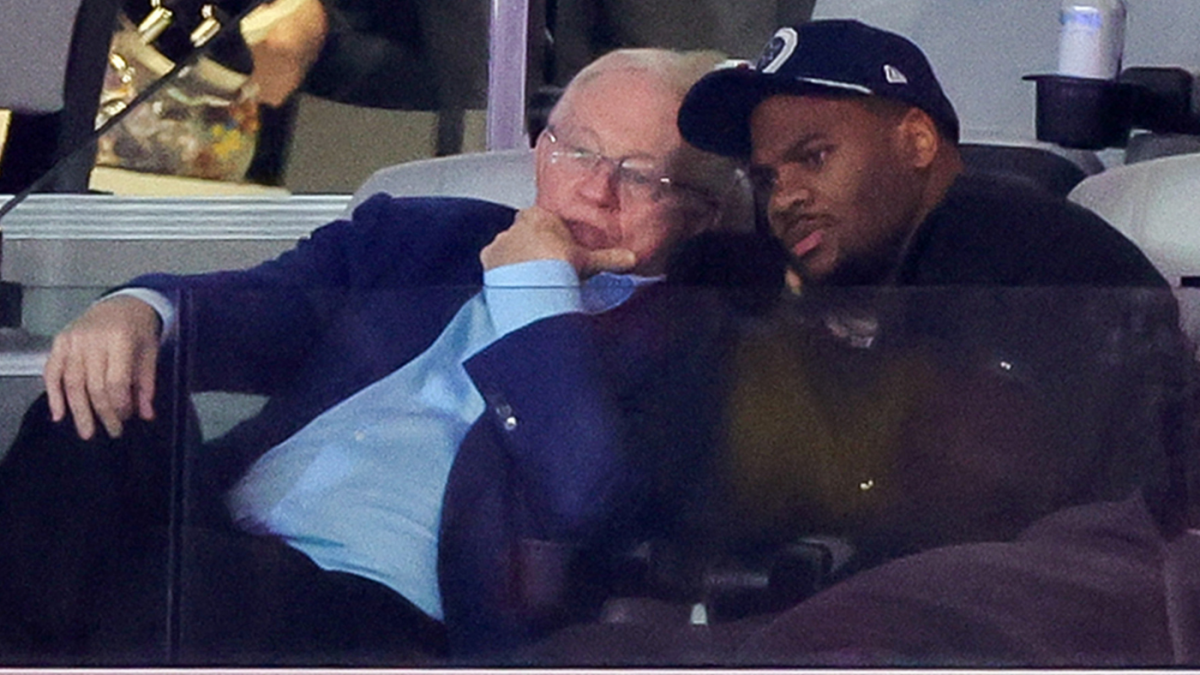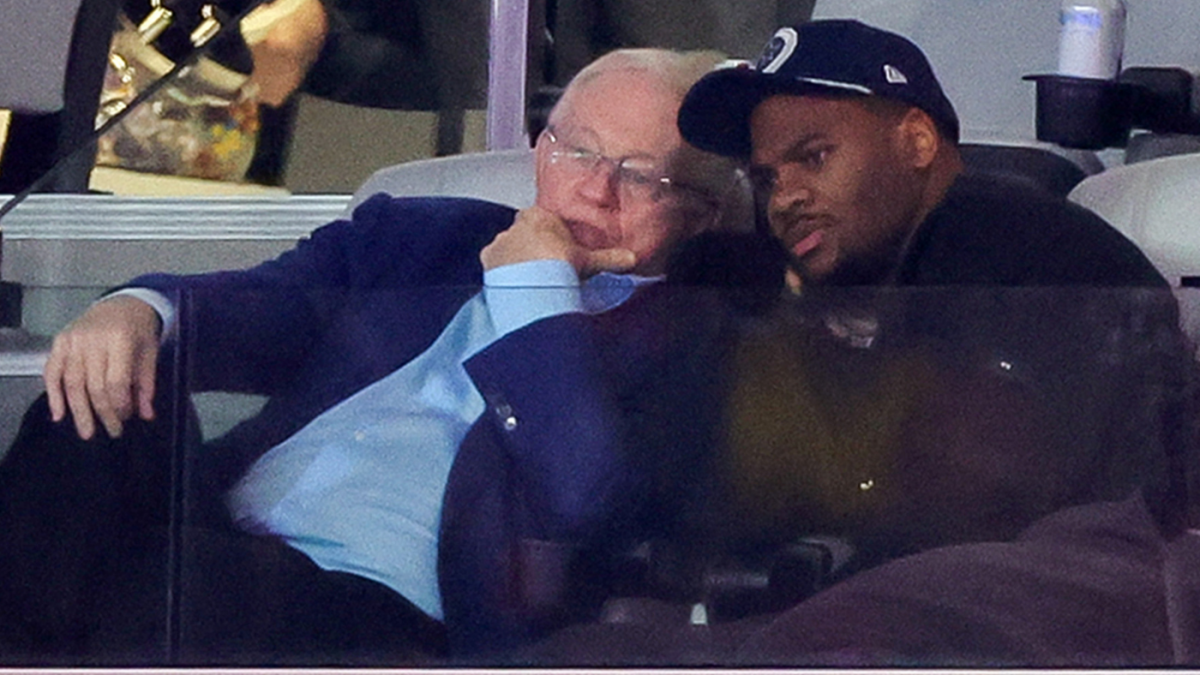The Impasse in Dallas: Analyzing Micah Parsons’ Trade Request and the Cowboys’ Contract Conundrum
A Timeline of Tensions: From Dialogue to Discord
The relationship between Micah Parsons and the Dallas Cowboys has reached a critical juncture, marked by a series of missteps and misunderstandings. The initial discussions between Parsons and Cowboys owner Jerry Jones began in January 2025, with a focus on extending Parsons’ contract. These early talks appeared promising, with Parsons emphasizing the importance of “leadership” in the negotiations. However, the dynamic shifted when Jones reportedly began communicating directly with Parsons, bypassing his agent, David Mulugheta of Athletes First. This unconventional approach, intended to foster a personal connection, ultimately exacerbated tensions.
As months passed without substantial progress, Parsons’ frustration grew. The situation reached a boiling point when Parsons’ agent attempted to initiate formal negotiations, only to be rebuffed by the Cowboys. This perceived lack of good-faith engagement, coupled with what Parsons described as “repeated shots at myself,” led to his public trade request on August 1, 2025. Parsons’ statement, “I no longer want to be here,” underscored the depth of his discontent and the irreparable damage to his relationship with the organization.
The Heart of the Matter: Beyond the Numbers
While contract disputes often revolve around financial compensation, Parsons’ trade request is rooted in deeper issues of respect and recognition. Parsons’ public statements suggest a sense of disrespect and a belief that his contributions to the team are undervalued. The decision by Jerry Jones to bypass Parsons’ agent is a significant factor in this dispute. While Jones may have intended to build a personal relationship with Parsons, this approach is often viewed negatively by players and agents, as it undermines the agent’s role and can create distrust.
Parsons’ mention of “repeated shots at myself” hints at personal grievances beyond contractual negotiations. These could stem from disagreements over team strategy, public criticism, or perceived slights from within the organization. Although the specific nature of these grievances remains unclear, their impact on Parsons’ decision is evident. This situation highlights the importance of addressing players’ concerns holistically, rather than focusing solely on financial terms.
Jerry Jones’ Gamble: A Risky Strategy
Jerry Jones’ history of dealing directly with star players, often excluding their agents, is a high-risk strategy that has yielded mixed results. While Jones may believe this approach fosters personal relationships and controls the narrative, it can create adversarial environments and foster resentment. Agents play a crucial role in advocating for their clients’ interests, ensuring fair compensation, and protecting players from unfavorable deals. By excluding Mulugheta from the negotiations, Jones may have inadvertently pushed Parsons toward the exit.
In today’s NFL, where player empowerment is on the rise, Jones’ approach may be outdated and counterproductive. Star players are increasingly aware of their market value and are willing to assert their rights, even if it means requesting a trade or exploring free agency. The Parsons saga serves as a cautionary tale for NFL teams, emphasizing the importance of respecting players’ agents and engaging in good-faith negotiations.
The Cowboys’ Options: Navigating a Treacherous Path
The Dallas Cowboys face a challenging decision: attempt to reconcile with Parsons and offer a lucrative contract or explore trade options. Each path presents unique challenges and potential consequences.
Option 1: Reconciliation and a Lucrative Deal
To convince Parsons to stay, the Cowboys must acknowledge his grievances, apologize for any perceived disrespect, and offer a contract that reflects his status as one of the league’s top defensive players. This would likely involve making Mulugheta a central figure in the negotiations and addressing any personal issues Parsons may have. However, even with a sincere effort, there’s no guarantee that Parsons will be willing to forgive and forget. The damage may already be irreparable, and Parsons may simply be too disillusioned to remain in Dallas. Moreover, setting a precedent by caving to Parsons’ demands could embolden other players to demand similar treatment in the future.
Option 2: Exploring Trade Options
Trading Parsons would significantly impact the Cowboys’ Super Bowl aspirations but may be the only viable option if reconciliation proves impossible. Trading Parsons would yield a significant return in terms of draft picks and potentially other players, allowing the Cowboys to rebuild and address other areas of need. However, finding a trade partner willing to meet the Cowboys’ demands will be challenging. Parsons is a premium player, and the Cowboys will likely seek a king’s ransom in return. Moreover, any team acquiring Parsons will also have to contend with his contract demands, further complicating the process.
The Wider Implications: A Warning for the League
The Micah Parsons saga serves as a cautionary tale for NFL teams and owners, highlighting the importance of respecting players’ agents, engaging in good-faith negotiations, and addressing personal grievances before they escalate into public disputes. In an era of increasing player empowerment, teams must adapt their approach to contract negotiations and prioritize building strong relationships with their star players.
The outcome of this situation will have far-reaching consequences. If the Cowboys are able to successfully navigate this crisis and retain Parsons, it will send a message that even the most disgruntled players can be brought back into the fold. However, if Parsons is traded, it will serve as a stark reminder that no player is bigger than the team, and that even the brightest stars can be expendable.
Conclusion: A Legacy in Limbo
Micah Parsons is a generational talent, a player capable of transforming a defense and leading a team to a Super Bowl. His future in Dallas hangs in the balance, and the decisions made by Jerry Jones in the coming days and weeks will determine not only Parsons’ fate but also the future of the Cowboys franchise. The situation has moved far beyond a simple contract dispute. It’s a test of wills, a clash of egos, and a stark reminder that even in the high-stakes world of professional football, human relationships matter. Whether Parsons will cement his legacy as a Cowboys legend or begin a new chapter elsewhere remains to be seen. One thing is certain: the NFL world will be watching closely as this drama unfolds.












